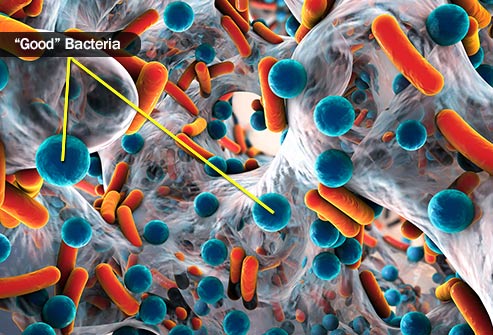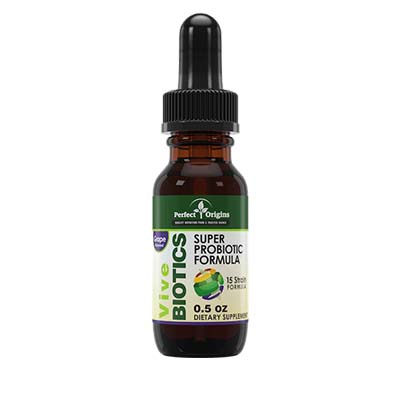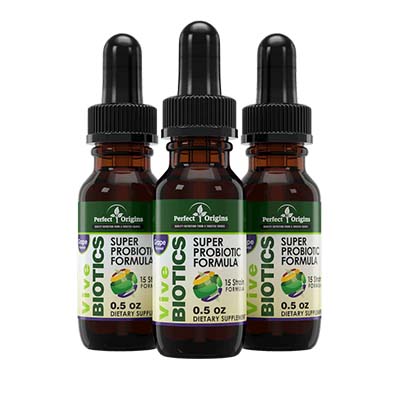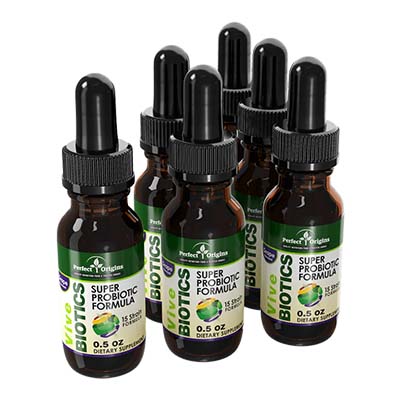Now, raise your hand if you think that’s a good thing. Surely not, right?
Trillions of bacteria? How can that be good?
Actually, it’s very good! And, in a healthy body, it’s very normal.
Your amazing body houses this very delicate system equipped to keep you healthy to fight disease…to function really.
And, its ability to effectively do those things hinges on the balance of these good and bad bacteria.
So, with that many bacteria in your body, is there something that you can do to ensure you have enough good bacteria to facilitate proper responses to infection and disease?
How can you know that your body is fully equipped to handle germs that could make you sick?
What can you do to help your body function at its best?
You can find the answers to these questions in one word: probiotics.
So, let’s first learn about these good and bad bacteria, then we’ll take a look at how probiotics play a key role in keeping them working for you in your body’s immune responses!
Good And Bad Bacteria In Your Gut
As we stated earlier, there are trillions of bacteria within your digestive tract, also known as your gut.
These massive numbers of bacteria are beneficial, even crucial to the health of your body.
The trouble is, those numbers are made up of good and bad bacteria, which are both needful, but must remain balanced.
And, research shows that this balance is certainly not 50/50.
What seems unbalanced numerically, at 85% good bacteria and 15% bad bacteria, is an optimal balance for your body.
When this delicate equilibrium is disturbed, your health is negatively affected.
One major blow to your health as a result of an imbalance in this microbiome in your gut is a compromised immune system.
And, with over 70% of your immune system being housed in your intestinal tract, it’s easy to see why!
Enter probiotics…
Probiotics are live, “good” bacteria that line your intestines.
These good bacteria:
- take in nutrients
- make enzymes that get rid of harmful bacteria
- aid in the production of vitamins (B12, K2)
- support immune responses
The foods you eat, medications you take (such as antibiotics), and illnesses that your body succumbs to can increase the bad bacteria in your digestive tract.
Probiotics found in supplements and some foods can increase the levels of good bacteria, restoring their dominance and thus the appropriate bacterial balance in your gut.
So, if your immune system is largely housed in your gut, and probiotics make up and increase the levels of good bacteria in your gut, then can probiotics boost your immune system?
Yes, they can! And here’s how…
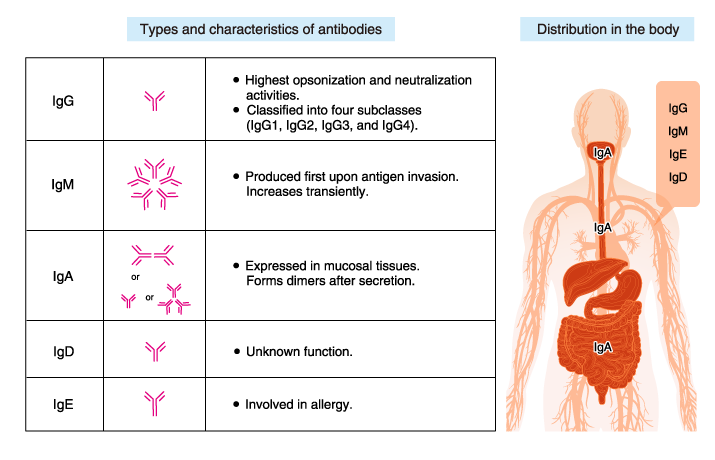
1- Stimulates IgA secretion
Your immune system has several ways to both keep germs from entering your body and attack those germs should they get past those first barriers.
Antibodies are produced by your immune system to aid in these efforts.
IgA, or immunoglobulin A is a type of antibody found in mucous membranes in places like your nose, gut, eyes, and ears.
These antibodies in the lining of your gut protect you from harmful bacteria.
Probiotics increase the secretion of this type of antibody offering added protection from infection-causing pathogens, especially in your digestive tract.
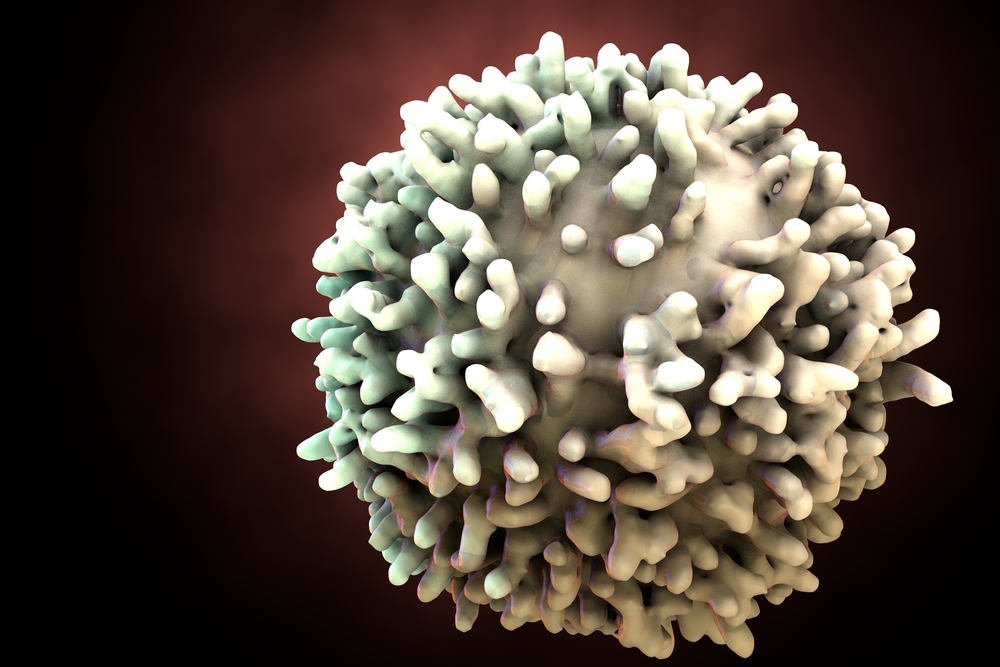
2- Activates B Cell Production
If germs make it past those first barriers of protection, there is another type of antibody produced within your immune system that attacks these pathogens before they can infect your cells.
These antibodies attach to a germ and neutralize it. And, once that germ is neutralized, it can no longer enter or infect healthy cells in your body.
B cells are responsible for making these antibodies. And, probiotics activate your body’s production of these cells, thus giving your immune system an added boost.
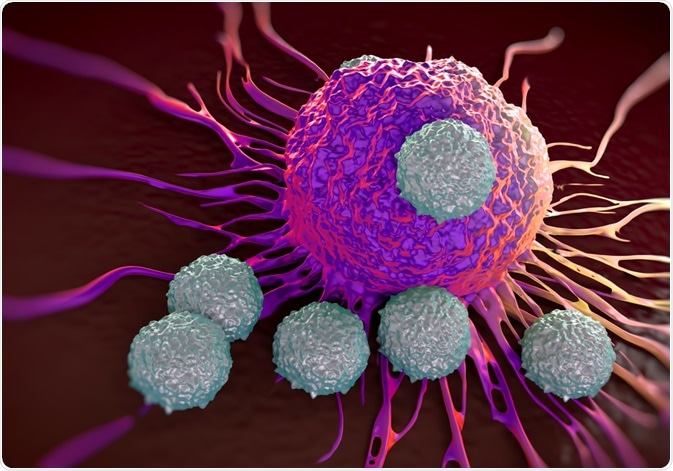
3- Activates T Cells
Another way that your immune system fights off infection is through the role of what are known as T cells.
T cells can identify cells in your body that have been infected by a germ and then destroy that infected cell.
Once it destroys that cell, it can make copies of itself. These copied T cells form an army to fight against any and all infected cells.
This process ensures that the virus or infection doesn’t survive within your body.
Probiotics stimulate T cells to ensure your immune system functions properly.
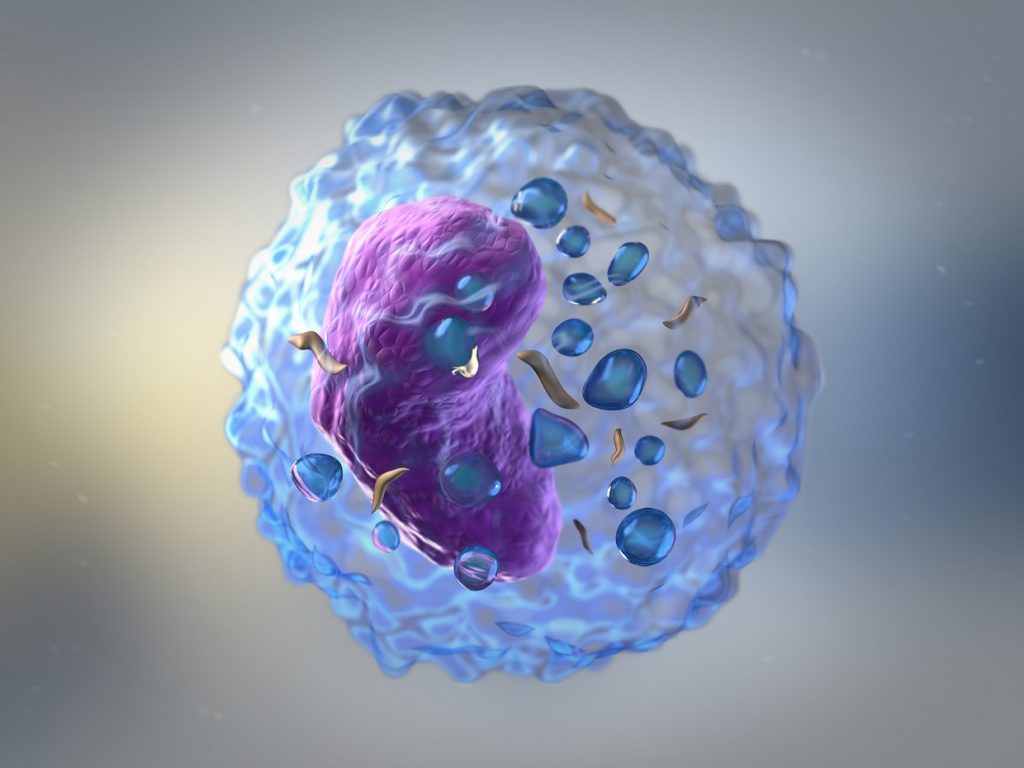
4- Boosts Natural Killer Cells
Killer cells or NK cells are a kind of white blood cell in your innate immune system.
While the T cells that we mentioned earlier attack and destroy invading pathogens, the natural killer cells make up the part of your immune system responsible for keeping such infections contained.
This is essentially keeping the infection at bay while those T cells are forming their army to destroy and eliminate the pathogen-invaded cells within your body.
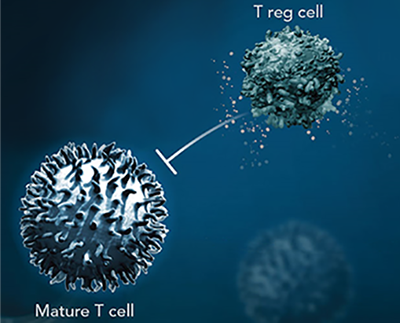
5- Stimulates Regulatory T Cells
No, we’re not doubling up on points here. Your body actually has more than one kind of T cell.
And, probiotics boost both kinds of these cells in supporting your immune system.
Regulatory T cells (or Tregs) are a special kind of T cell. These T cells actually work to quell your immune responses in some situations.
While your immune system does work as an attack force against invading germs, this is a specialized attack force. It is not haphazard. It is not chaotic. AndIt is not a blitz.
Your immune system operates in targeted responses. It assesses the target. It attacks the target. And, it does so with precision.
This type of attack ensures that there is no other damage to your body in this process of eliminating infection.
Regulatory T cells do…well…they do just that, they regulate!
By regulating these immune responses, you are protected against inflammation and the diseases that stem from it.
If your body can’t regulate these responses, overreaction can occur on the part of your immune system. This is what causes inflammation.
When your immune system overreacts in this way and chronic inflammation occurs, you are prone to a host of diseases, such as:
- various cancers
- heart disease
- type 2 diabetes
- asthma
Probiotics stimulate Tregs to ensure that your immune system does not overreact and thus cause chronic inflammation as it works to eliminate infection.
Vive Biotics
You can supercharge your immune system and benefit from all that we’ve discussed here with Vive Biotics.
With Vive Biotics, you can:
- hold back the growth of bad gut bacteria
- restore healthy levels of good gut bacteria
- repair damage in your intestinal tract that could be allowing harmful bacteria to enter
- boost immune responses
and…
- break down and remove harmful toxins from your body
- support healthy fat loss
- enhance digestion
Containing 15 unique probiotic strains, Vive Biotics is the most powerful probiotic on the market!
References:
- https://pubmed.ncbi.nlm.nih.gov/9849357/
- https://pmc.ncbi.nlm.nih.gov/articles/PMC9818925/
- https://draxe.com/nutrition/probiotics-benefits-foods-supplements/
- https://draxe.com/how-to-hack-your-immune-system/
- https://www.ncbi.nlm.nih.gov/pmc/articles/PMC4006993/
- https://www.gutmicrobiotaforhealth.com/about-gut-microbiota-info/
- https://pubmed.ncbi.nlm.nih.gov/24912386/
- https://pubmed.ncbi.nlm.nih.gov/15481739/
- https://pubmed.ncbi.nlm.nih.gov/22424233/
- https://pubmed.ncbi.nlm.nih.gov/14557292/
- https://pubmed.ncbi.nlm.nih.gov/12369194/
- https://www.ncbi.nlm.nih.gov/pmc/articles/PMC4006993/
- https://pubmed.ncbi.nlm.nih.gov/20672742/
- https://pmc.ncbi.nlm.nih.gov/articles/PMC4006993/
- https://www.sciencedaily.com/terms/natural_killer_cell.htm#:~:text=Natural%20killer%20cells%20(also%20known,component%20of%20innate%20immune%20system.&text=They%20serve%20to%20contain%20viral,that%20can%20clear%20the%20infection.
- https://cellapplications.com/human-intestinal-epithelial-cells-hinepc#:~:text=The%20intestinal%20epithelium%20is%20a,a%20barrier%20against%20luminal%20pathogens.
- https://www.nature.com/articles/nri3429
- https://drcprevent.com/blog/8108-what-is-siga-and-how-does-it-effect-your-immune-system

